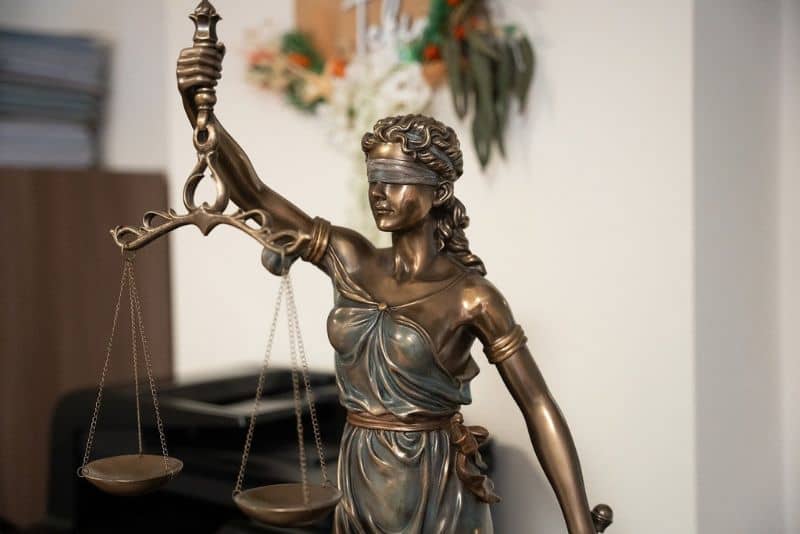Miranda Rights & Warnings: When to Invoke Your Right to Remain Silent

The right to remain silent is a fundamental Constitutional protection afforded to all individuals in the United States.
But many citizens don’t know when and how to exercise this right effectively.
If you’re curious about your right to silence, when it applies, how to invoke it, and the consequences of speaking after invoking your right, read on, and we’ll discover these subjects together.
The Fifth Amendment and Your Miranda Rights
The right to remain silent is covered under the Fifth Amendment of the United States Constitution, which protects individuals against self-incrimination.
This Amendment ensures that no person shall be compelled in any criminal case to be a witness against themselves.
In the landmark US Supreme Court case Miranda v. Arizona (1966), the Court established the famous Miranda rights, which police officers must read to suspects before questioning them while in custody.
The Miranda warning includes four essential components:
- You have the right to remain silent.
- Anything you say can and will be used against you in court.
- You have the right to an attorney.
- If you cannot afford an attorney, one will be appointed for you before any questioning begins if you so desire.
The Founders designed these Constitutional rights to protect individuals from making self-incriminating statements and ensure their confessions are voluntary.
When the Right to Remain Silent Applies
The right to remain silent applies in situations known as “custodial interrogations.”
A custodial interrogation occurs when an individual is in police custody (not free to leave) and is questioned by law enforcement officers.
You should understand that custody does not always mean formal arrest. If a reasonable person in the suspect’s position would not feel free to leave, the law considers them to be in custody for Miranda rights.
However, there are some exceptions to the requirement for Miranda warnings:
Routine Traffic Stops
During a traffic stop, police officers may ask for your driver’s license, registration, and proof of insurance without reading your Miranda rights.
Public Safety Exceptions
If there is an immediate threat to public safety, such as the location of a hidden weapon, police may ask limited questions without providing Miranda warnings.
Voluntary Statements
If you voluntarily offer information to the police without being questioned, those statements may be admissible in court even if you have not read your Miranda rights.
Right to Remain Silent and Probable Cause
You should also note that the right to remain silent does not depend on whether the police have probable cause to arrest you.
In other words, you still can invoke your Fifth Amendment right against self-incrimination even when the police don’t have sufficient evidence to justify an arrest.
However, if the police have probable cause, they may arrest and take you into custody. At this point, you must exercise your right to remain silent and request your right to counsel.
Remember:
- You are not obligated to answer any questions law enforcement poses, even if they insist you do.
- Politely but firmly inform the officers that you are invoking your right to remain silent and wish to speak with an attorney.
- Do not engage in casual conversation or attempt to explain your situation, as this could inadvertently waive your rights.
How to Invoke Your Right to Remain Silent
You must clearly and unambiguously state that you are exercising your right to remain silent to assert it effectively.
Simply remaining silent or refusing to answer questions is not enough.
Use phrases such as:
- “I am invoking my right to remain silent.”
- “I want to exercise my Fifth Amendment right.”
- “I choose to remain silent.”
Once you have invoked this right, the police must stop questioning you. If you also request an attorney, the police cannot interrogate you further until your criminal defense lawyer is present.
Why Affirmatively Invoke Your Right
Affirmatively taking “The Fifth” is necessary because if you do not distinctly invoke it, anything you say may be used as evidence against you in a court of law.
Ambiguous statements, like “I think I should remain silent” or “Maybe I shouldn’t say anything,” are insufficient to protect your rights.
Consequences of Speaking After Invoking Your Right
If you speak to the police after invoking your right to remain silent, you may waive your rights, and your statements could be used against you in court.
You must be clear and consistent in your decision to remain silent.
However, under the “Edwards Rule,” established in EDWARDS v. ARIZONA (1981), if you have invoked your right to an attorney, the police cannot question you further unless you re-initiate communication with them.
This rule provides additional protection for suspects who have requested legal counsel.
Your Right to Remain Silent in Court
The right to remain silent extends beyond police interrogations and into the courtroom.
You have the right not to testify in your defense, and if you choose to exercise this right, the judge must instruct the jury not to hold your silence against you.
This protection is rooted in the principle that the burden of proof lies with the prosecution, and you are presumed innocent until proven guilty.
If you decide to testify, be aware that you will be subject to cross-examination by the prosecutor, and your testimony can be used as evidence in your case.
Limitations on the Right to Remain Silent
While the right to remain silent is a comprehensive protection, it does have some limitations:
- Providing identification: When a police officer requests your name and identification, you must comply.
- Public safety exceptions: In situations involving an immediate threat to public safety, police may ask limited questions without reading your Miranda rights.
- Administrative proceedings and civil cases: The right to remain silent generally does not apply in administrative proceedings or civil cases. However, exceptions exist, such as when answering could expose you to criminal liability.
Remaining Silent vs. Lying to Law Enforcement
While you have the right to remain silent when questioned by police, it’s not the same as lying to law enforcement.
You must be truthful in your statements when electing to speak. Keep in mind that:
- Lying to law enforcement leads to additional criminal charges, such as obstruction of justice or making false statements.
- If you are unsure how to respond to a question or feel that answering could incriminate you, it’s best to invoke your right to remain silent.
- Remember, the police cannot punish you for exercising your constitutional rights, but you can face consequences for providing false information to the police.
In these situations, it’s always advisable to consult a qualified criminal defense attorney who can guide you through the Fifth Amendment process and protect your rights.
Safeguard Your Freedom: Know When to Remain Silent
The right to remain silent is a central protection that every individual should understand and be prepared to exercise when necessary. By knowing when the right applies, how to invoke it properly, and the consequences of speaking after invoking your right, you can protect yourself from self-incrimination and ensure that your constitutional rights are upheld.
If you are under investigation or have been arrested for a crime in Nevada or Utah, contact our criminal defense attorneys at Benjamin Durham Law Firm. We protect your constitutional rights and fight for the best possible outcome in your case.
Contact us for a consultation.



